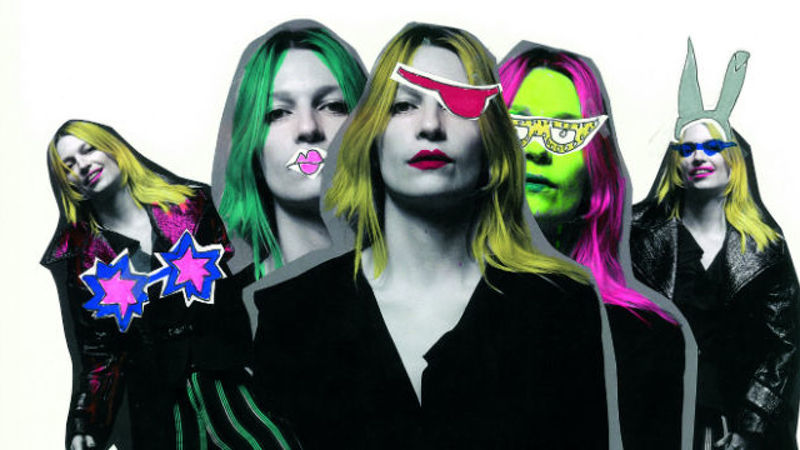How To... Confront The Monsters in Adland’s Closet
From talent-sucking Brexit vampires to uncanny robots, Theo Izzard-Brown, chief strategy officer, McCann London tells us to face our fears and vanquish the monsters.
Monsters. Powerful literary and folkloric expressions of our evolving cultural fears. Early mariners were apprehensive of sea voyages so conjured leviathons lurking in the deep.

In the 50s we became obsessed with a new type of monster, the body-snatcher, a reflection of McCarthyism and the creeping red menace of communism. The 70s and 80s had us fearing blood-thirsty vampires, as greed and mass consumerism took hold. And in today’s post-recession climate of uncertainty our monster du jour is the zombie – a symbol of our crumbling capitalist lifestyles.
As each monster has its zeitgeist moment in history, what about the demons facing one industry in particular, that of advertising?
The consultant “White Walker”: fear of assimilation

The all-powerful, colossal consultancies are muscling their way into the advertising industry, with the likes of Accenture buying up independent creative agency Karmarama and heavyweight Deloitte adding mid-weight ad firm Heat to its roster. With the promise of creativity plus guaranteed commercial effect, consultancies, whilst shrouded in their mystery and voracious appetite for acquisition, are best thought of as Adland’s “White Walkers”.
Consultancies seemingly threaten the survival of agencies’ unique identity and purpose. We’re afraid of their legion armies of sharp-suited, calculator-wielding automotons swallowing us whole, engulfing creative agencies with their consultancy business model, forcing us to abscond from our true north – our creativity.
The fact is that this consultancy model offers something new to brands – and this instils in us a fear of becoming vestigial, of being left behind or made redundant. They’re saying they can offer a business solution to brands, not just a creative one. They can wield their weapons of data and fire-breathing dragons of knowledge, but in truth (for now at least) we still hold an ace up our sleeve, and that’s our creative prowess.
Our comfort with illogical yet emotionally stirring storytelling, our working culture, our thirst for innovative creative application and, above all, our talent are our dragonglass. What we need to do is stop fearing assimilation, but instead start using and incorporating data in a smarter way. We must also reinvent our pricing models and further strip out process inefficiencies.
In an on-demand world where everyone is trying to navigate procurement, ideas live or die in our ability to execute at pace. So, we agencies need to stop thinking about our “creative” departments and instead look to “creation” departments. Only when creativity is indivisible from production and driven by both hard and soft data can we confront and vanquish the White Walker foe.
The Brexit vampire: Fear of being drained

Brexit and the talent drain cast an ominous twilight shadow of uncertainty over our industry. Attracting and retaining talent is vital to us; yet as we tumble towards our European divorce, Brexit represents a new type of blood-sucking vampire, one that could drain us of our cultural diversity and, in turn, our cultural sensitivities. If our talent is our IP then Brexit constitutes an existential threat. Our sole value is in the calibre of our ideas to reach and engage diverse audiences at scale – history shows us these kinds of ideas are usually born of a healthy mix of different skills and different cultures.
So, with Brexit on the horizon, we need to be prepared to travel further afield to attract the best talent. And with high mobility in our industry, we must nurture existing talent and let them know once they’ve left that they can always can come back into the fold.
The UK has historically been seen as a trailblazer in the advertising world and that can, in part, be attributed to our proud tradition of multi-culturalism. Places like London, Manchester and Edinburgh are beacons for migrant and incumbent workforces alike. Only by keeping our gates open to talent from all walks of life will our thinking be enhanced.
The AI robots: Fear of being superseded

AI. The promise of automated efficiency in pursuit of slithers of marginal programmatic gains is instilling in Adland’s people a creeping fear of being superseded. The fact is whereas AI seems highly likely to disrupt media agencies when it comes to creative, generation agencies are relatively safe. In 2015, McCann Japan created the world’s first AI creative director, capable of directing a TV ad. They then pitted the AI director against a human creative director and put the two ads to a public vote. The human creative director won.
The truth is that where computers calculate, humans speculate, and creativity cannot reliably be calculated – it is about mess and chaos and a serendipitous combination of thinking. The robots won’t render us obsolete just yet.
There’s much to be said for the monsters in Adland. Whilst our fears of consultancy White Walkers, talent blood-sucking vampires and uncanny robots might have some credence, they should only serve as a reminder that talent, culture, creation and diversity are our greatest assets.
Connections
powered by
- Agency McCann London
Unlock this information and more with a Source membership.







 Membership
Membership


